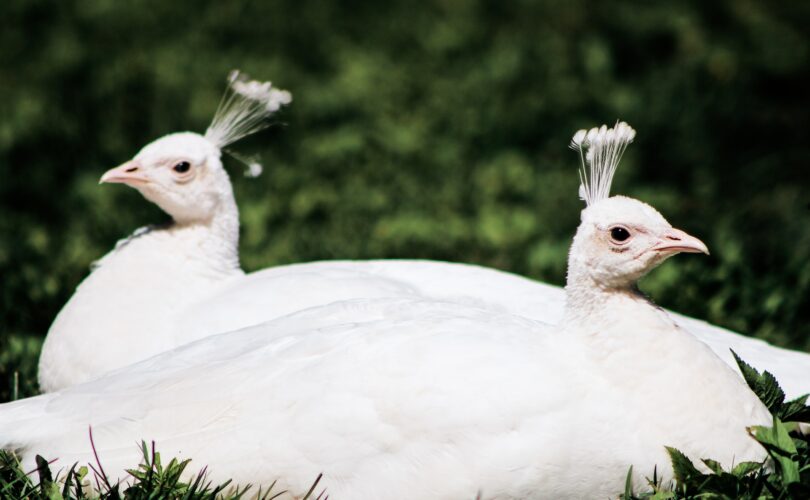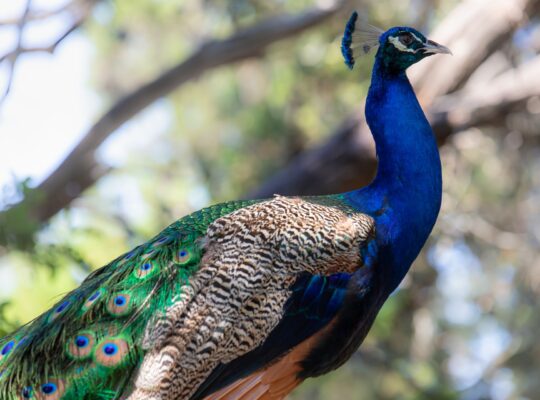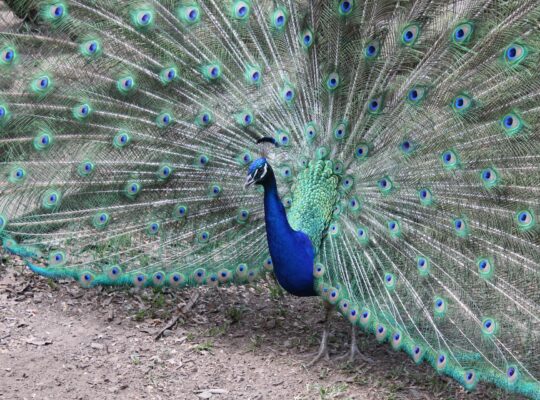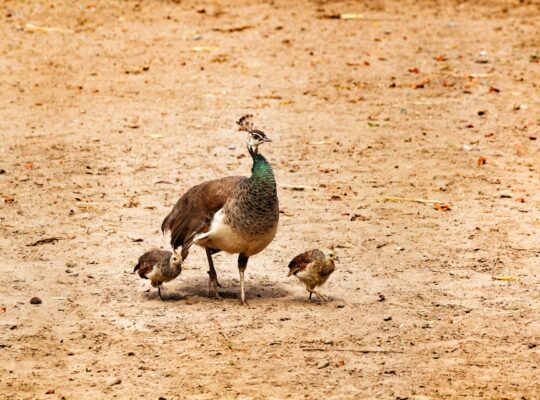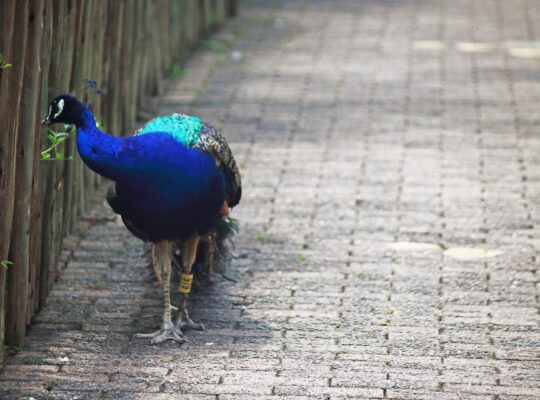Peahens, also known as female peafowl, normally begin producing eggs between the ages of two and three. Peahens may also be called peacocks. They will keep laying eggs for several years, but at some point in the future, their egg production will decrease as a natural consequence of their advancing years. The specific age at which peahens cease producing eggs may vary based on several variables, including their nutrition, the environment in which they live, and their genetics.
Peahens, on average, may continue to produce eggs until they are roughly 10 to 12 years old; however, some produce eggs far into their late teens. Peahens’ ability to produce eggs will start to decrease as they age, and they may be smaller and less frequent when they do lay eggs. In addition, as chickens age, they run a greater risk of developing health problems, including reproductive disorders and illnesses, which may negatively impact their capacity to produce eggs.
It is essential to be aware that environmental elements, including temperature, illumination, and stress, have the potential to have a role in determining the duration of the egg-laying cycle of a hen. Peahens, for instance, may produce fewer eggs during excessive heat or cold and if they are subjected to high amounts of noise or stress.
It is essential to supply a peahen with a meal that is both well-balanced and rich in protein and nutrients if one wants to maintain her health and lengthen the time between the laying of eggs by the hen. Also, ensuring that she has access to a clean and pleasant living environment, with enough room to move about and exercise, may assist in reducing stress and promoting good egg production.
In summation, while peahens can continue laying eggs until they are around 10 to 12 years old, the age at which they stop producing eggs may vary from bird to bird. Peachicks may keep laying eggs until roughly 12, their maximum lifespan. It is vital to provide a hen with a nutritionally sound diet and a comfortable living environment to aid in keeping the hen healthy and to encourage the creation of nutritionally sound eggs.
Do Peahens Lay Eggs Daily?
Peahens do not lay eggs every day. Peahens, like many other bird species, have a natural reproductive cycle that includes active egg-laying phases followed by times of rest. Peahens may lay one egg every other day or every few days at the height of their egg-laying season, but they will not deposit eggs daily.
The egg-laying frequency may also vary according to environmental conditions such as temperature, illumination, and stress. Peahens, for example, may produce fewer eggs during excessive heat or cold or when subjected to high levels of noise or stress. Peahens may also cease producing eggs entirely if they suffer from health problems or are nearing the end of their normal reproductive cycle.
Peahens, like other birds, will only lay eggs if mated with a male peacock. A peahen will not lay eggs if she has not mated. Moreover, if a peahen is kept in a setting without a male peacock, she may develop behavioral and physiological problems due to her inability to mate and produce eggs.
Peahens do not produce eggs daily but rather follow a natural reproductive cycle that includes active egg-laying periods followed by rest periods. The frequency of egg-laying may also vary based on environmental circumstances and the health and well-being of the peahen.
How Long Do Peafowls Lay Eggs?
Peafowls, including male and female peacocks, normally begin producing eggs between 2-3 years old. The time it takes for peafowls to lay eggs varies depending on several variables, including genetics, food, and climatic circumstances.
Peahens have a natural reproductive cycle that includes active egg-laying phases followed by rest intervals. Peahens may lay one egg every other day or every few days at the height of their egg-laying season, but they will not lay eggs every day. The egg-laying frequency may also vary according to environmental conditions such as temperature, illumination, and stress.
Peahens may lay eggs until they are roughly 10-12 years old, with some peahens even laying eggs into their late teens. But, as peahens age, their egg production begins to drop, and the eggs they lay may be smaller and less frequent. Moreover, as peahens mature, they may develop health difficulties interfering with their egg-laying capacities, such as reproductive disorders or illnesses.
It’s noteworthy that peafowls will only deposit eggs if mated with a male peacock. Peahens do not deposit eggs if they have not mated. Moreover, suppose a peahen is kept in a setting without a male peacock. In that case, she may develop behavioral and physiological problems as a result of her inability to mate and produce eggs.
Finally, peafowls normally begin producing eggs between the ages of 2-3 years and may continue to produce eggs until 10-12 years. The frequency with which eggs are laid might vary depending on several variables, including heredity, food, and environmental circumstances.
Peahens have a natural reproductive cycle that includes active egg-laying phases followed by times of rest, and they will only lay eggs if they have mated with a male peacock.
Do Peahens Lay Eggs On The Ground?
Peahens do deposit their eggs on the ground. Like many other bird species, Peahens normally deposit their eggs in nests built on the ground. Peahen nests are usually tiny and shallow, with leaves, grass, or other materials used to cushion and insulate the eggs.
Peahens may build their nests in several places, depending on the climate and the availability of appropriate materials. Peahen nests are often found in regions with long grass or shrubs, behind tree branches or bushes, or under another natural shelter.
It is vital to know that peahens will only lay eggs in areas that they believe are safe and secure. They may also be picky about the materials they choose to build their nests, selecting materials that offer adequate insulation and egg protection.
Peahens deposit their eggs on the ground, usually in their little nests. These nests may be found in various habitats, but they are usually found in areas where the peahen thinks safe and secure for her eggs.

